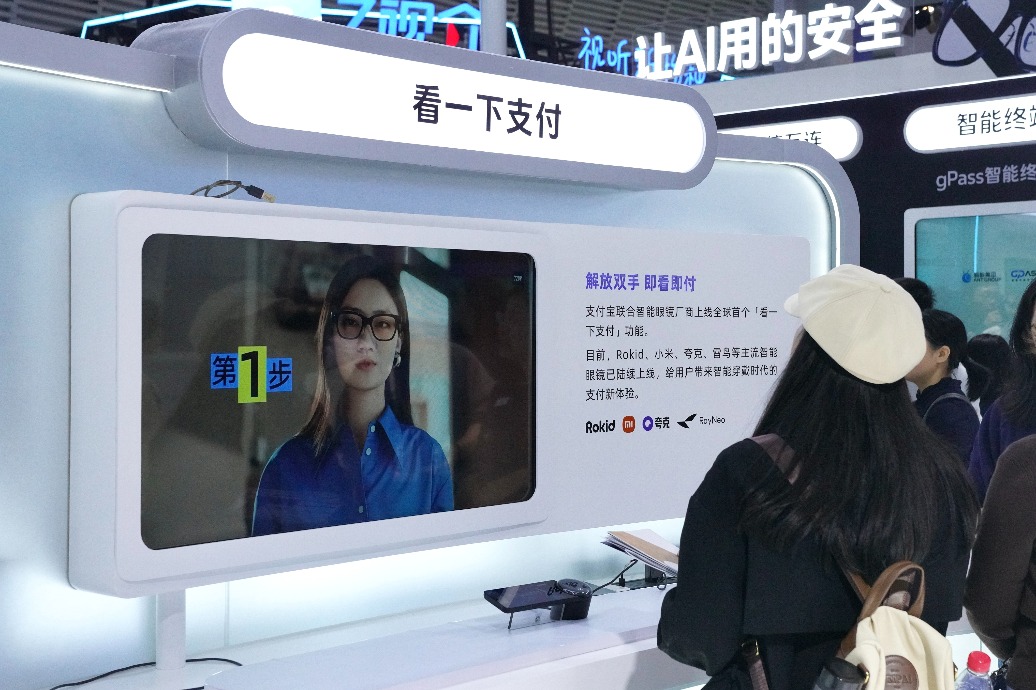Power play

Chinese nuclear companies should integrate technologies with this British supply chain to boost localization, says former head of UK Atomic Energy Authority
China has great nuclear capabilities and the integration of its technology into Britain's supply chain will benefit both nations, according to Barbara Judge, an influential industry consultant.
With the Hinkley Point power station finally getting the go-ahead, China is now hoping the Hualong One, its domestically made third-generation reactor, will pass Britain's rigorous generic design assessment, with an eye to it being included in a proposed plant at Bradwell, southeast England.

The reactor passed the International Atomic Energy Agency's generic reactor safety review in 2014, showing that it meets international standards.
"I understand perfectly why the Chinese would like to build Bradwell," says Judge, a former chairwoman of the UK Atomic Energy Authority who continues to advise governments and companies on the nuclear sector.
She explains that receiving approval from the UK Office of Nuclear Regulation means it will be easier to export Hualong One to other developed nations.

"If the Chinese indigenous nuclear technology is approved, it will be in the interest of the Chinese to build a power plant (in Britain), because they can use that example as a way to sell their technology to other countries.
"China will benefit from increased economies of scale of nuclear projects when involved in more projects overseas," she adds. "It's natural for China to want to develop overseas nuclear markets, as it is what many other countries with great nuclear capabilities are doing, including the United States, France, Japan, (South) Korea and Russia."
British Prime Minister Theresa May gave the green light in September to the Hinkley Point power station, which will be built in the West Country at an estimated cost of 18 billion pounds ($23.3 billion; 20.7 billion euros). Construction will be carried out by France's EDF, the main investor, while China General Nuclear Power Group will provide part of the funding.
The nuclear project will be the first built with Chinese investment in a developed market, marking a breakthrough for the nation's industry.
China has 35 nuclear reactors, with 20 more under construction, and aims to have at least 110 in operation by 2030. So far, however, domestic companies have participated only in projects in developing countries, including Argentina and Saudi Arabia.
As part of CGN's agreement with EDF to collaborate on Hinkley, the companies also will cooperate in two more British projects, at Bradwell in Essex and Sizewell in Suffolk.
Judge, who founded the UK-China Business Leaders Club, says Chinese nuclear companies should incorporate Britain's industry supply chain into their technology to localize designs for the UK market. This technology can then be exported to international markets, which would benefit Britain and China, she says.
British companies in the nuclear industry supply chain are now in talks to incorporate their technologies with that of potential Chinese partners.
Rolls-Royce, for example, signed agreements with CGN, China National Nuclear Corp and State Nuclear Power Technology Corp in 2014 to work together on projects in Britain and China. The company will support Chinese enterprises throughout the lifecycle of a nuclear project, offering engineering support, components and systems, emergency diesel generators, supply chain management and instrumentation and control technology.
"It's important for the Chinese to utilize the UK's nuclear industry supply chain in their proposed projects," Judge says, adding that it is also important "for China and the UK to develop a strong working relationship for projects in other countries".
Chinese companies are looking to participate further in Britain's nuclear sector by developing small modular nuclear reactors, which have a capacity of less than 300 megawatts. They are smaller than traditional nuclear plants and cheaper to build.
The SMR concept has been around for years - China, South Korea, the US and Russia all have designs - but so far no one has been able to build on a commercial scale.
After the British government launched a competition to find the best-value design for future projects, China National Nuclear Corp signed a deal with the Nuclear Advanced Manufacturing Research Centre, which is led by Sheffield and Manchester universities, to collaborate on localizing its SMR design, the ACP100, should it win.
The government has committed 250 million pounds over the next five years to the competition, which is run by the UK Department for Energy and Climate Change.
"I'm a supporter of SMRs as they are quicker to build and less expensive," Judge says, although she adds that the main challenge is that regulators will not approve technology that does not have a customer, and customers will not invest in a project that uses technology that has not been approved.
"I'm a supporter of nuclear technology because it provides base load power generation without carbon, therefore is an important energy source. Nuclear energy technology is at an advanced stage of development, and China has an important role to play to push forward nuclear development."
Judge, a native of New York, began her career as a lawyer and was made partner at Kaye, Scholer, Fierman, Hays & Handler in 1978. Two years later, US President Jimmy Carter appointed her to the Securities and Exchange Commission in Washington. At 32, she was the youngest SEC commissioner and only its second woman.
In 2002, she became director of the UK Atomic Energy Authority and went on to serve as its chairwoman from 2004 to 2010.
A long-time advocate for strong UK-China relations, Judge first visited China as a tourist almost four decades ago.
"I was probably one of the earliest American tourists," she says. "I knew China would change, and I wanted to see the country before that happened.
"On my first trip I visited Shanghai, Beijing, Guangzhou and Hangzhou. There were few foreigners back then and people were pulling my long blonde hair to see if it was real."
She has since been many times for business and is a director of several companies expanding in the Chinese market. She has also formed a partnership with Eve Group to help the Chinese fashion brand to enter Western markets.
In addition, Judge has given lectures at Chinese universities and says people in the West can learn from China's approach to education.
"I mostly lecture on nuclear power and the topic of women's education," she says. "I believe that for women to gain equality, they should study math, science and engineering. Chinese women are doing very well in these areas."
cecily.liu@mail.chinadailyuk.com
(China Daily Africa Weekly 09/30/2016 page32)
Today's Top News
- Crossing a milestone in the journey called Sinology
- China-Russia media forum held in Beijing
- Where mobility will drive China and the West
- HK community strongly supports Lai's conviction
- Japan paying high price for PM's rhetoric
- Japan's move to mislead public firmly opposed






























